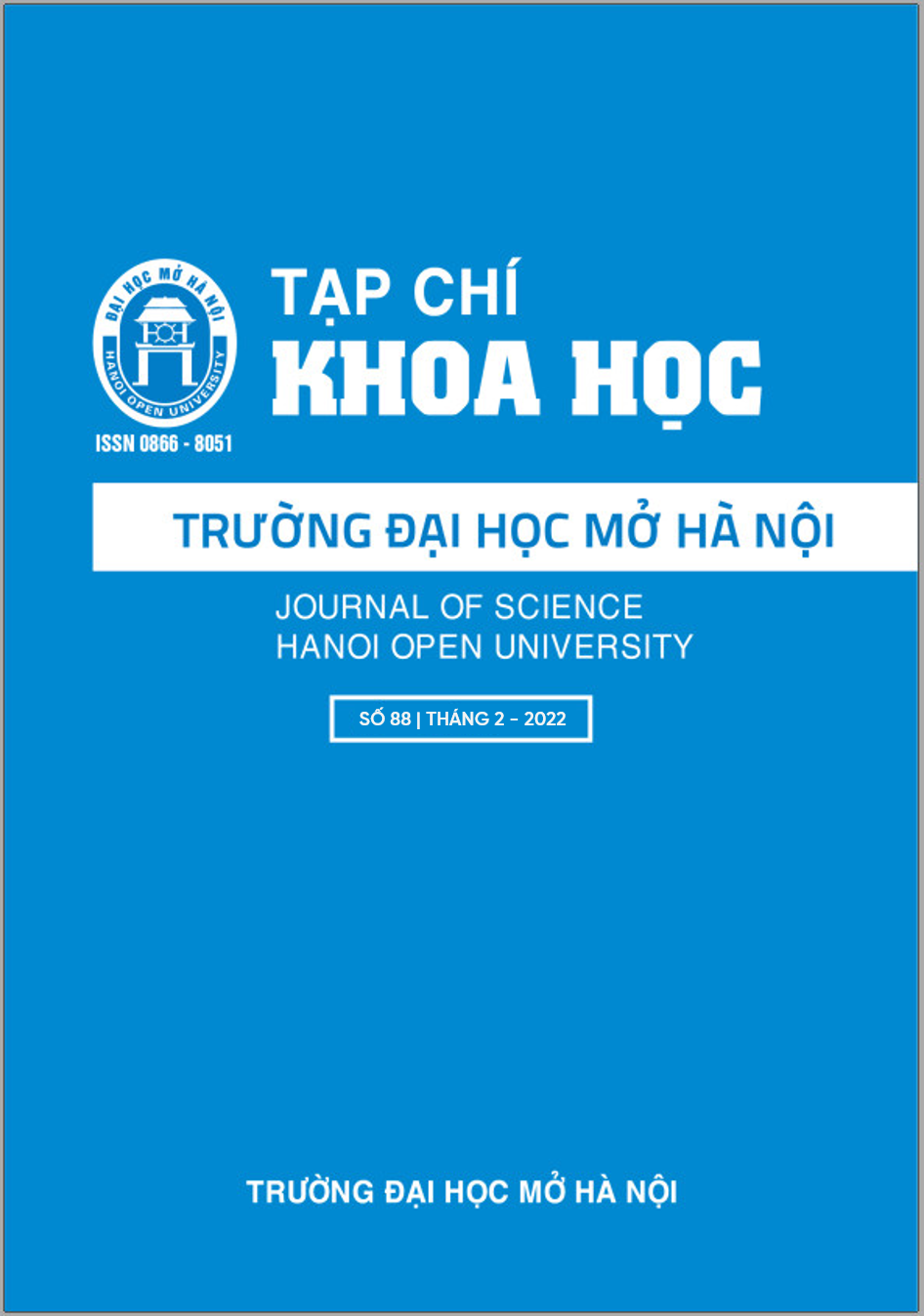VAI TRÒ CỦA MÔ HÌNH HỌC TẬP KẾT HỢP TRONG GIÁO DỤC ĐẠI HỌC Ở VIỆT NAM HIỆN NAY
Keywords:
Học tập kết hợp, học tập trực tuyến, chất lượng, giáo dục đại học, mô hìnhAbstract
Tóm tắt: Chuyển đổi số trong xã hội nói chung và trong đào tạo đại học nói riêng là một tất yếu trong thời đại phát triển công nghệ thông tin hiện nay cũng như trước tình hình ứng phó với dịch bệnh Covid-19 trên toàn cầu. Xu thế sử dụng công nghệ thông tin để chuyển đổi mô hình tổ chức hoạt động trong đào tạo đại học truyền thống đã đem lại hiệu quả thiết thực cho các nhà quản lý cũng như cơ sở giáo dục đại học. Sự kết hợp của việc hướng dẫn trực tiếp trên lớp học và ứng dụng môi trường kỹ thuật số tạo nên một trải nghiệm học tập thích hợp với mỗi cá nhân để đạt hiệu quả tốt hơn. Học tập kết hợp đề cập đến việc tích hợp hướng dẫn trực tiếp truyền thống và học tập trực tuyến mang đến cho người tham gia những điều tốt nhất của cả hai hình thức đào tạo.
Mục đích của nghiên cứu là chỉ ra vai trò và tầm quan trọng của mô hình học tập kết hợp Blended Learning trong các cơ sở giáo dục đại học để nâng cao chất lượng giáo dục đào tạo, tạo nguồn nhân lực có chất lượng cao cho xã hội.
References
[1]. Ahmed I, Qadri S.A. et al.(2011). Information Technology: Its impact on Global Management. World Applied Sciences Journal 12(7), 1100-1106.
[2]. Annan, D.L.(2008). Education Teaching Methods and Curriculum Computers- Computers Assisted Instruction. Distance Learning, 5(1), 13-17.
[3]. Chen, W. and Yao, A. (2016). An Empirical Evaluation of Critical Factors Influencing Learner Satisfaction in Blended Learning: A Pilot Study. Universal Journal College of Educational Research 4(7), 1667-1671.
[4]. Colis, B., and Moonen, J. (2001). Flexible learning in a digital world: Experiences and expectations. London: Kogan-Page.
[5]. Graham, C. R., Woodfield, W., & Harrison, J. B, (2013), A framework for institutional adoption and implementation of blended learning in higher education, Internet and Higher Education, 18(3), p.4-14, Doi: 10.1016/j.iheduc.2012.09.003.
[6]. Garrison, D. R., & Vaughan, N, (2008), Blended learning in higher education, San Francisco, CA: Jossey-Bass
[7]. Harrison, M. (2013). Blended Learning – Current Use, Challenges and Best Practices. Report 2013. Brighton: kineo. The Oxford Group.
[8]. King, S. and Arnold, K. (2012). Blended Learning Environments in Higher Education: A Case Study of How Professors Make it Happen. Mid-Western Educational Researcher, 25(1/2), 44-57.
[9]. Koper, R. and Tattersall, C. (2004). New Directions for Lifelong Learning Using Network Technologies. British Journal of Education Technology, 35(6), 689-700.
[10]. Leidner, E. D. and Jarvenpaa, L.S. (1995). The Use of Information Technology to Enhance Management School Education: A theoretical View. MIS Quartely, 265-290. 11. 12. Megeid, N. (2014). E-learning Versus Blended Learning in Accounting Courses. The Quartely Review of Distance Education, 15(2), 33-55.
[11]. O’Lawrence, H. (2007). An Overview of the Influences of Distance Learning on Adult Learners. Journal of Education and Human Development, (1) 1, 126-135.
[12]. Rovai, P. and Jordan, H. (2004). Blended learning and sense of community: A comparative analysis with traditional and fully online graduate courses. International Review of Research in Open and Distance Learning, 5(2), 2-13.
[13]. Sife, A.S. et al. (2007). New Technologies for Teaching and Learning: Challenges for Higher Learning Institutions in Developing countries. International Journal of Education and Development Using Information and Communication Technology (IJEDICT), 3(2), 57-67.
[14]. Tseng, H. and Walsh E. (2016). Blended Versus Traditional Course Delivery Comparing Students’ Motivation, Learning Outcomes, and Preferences. The Quarterly Review of Distance Education, 17(1), 43-52.
[15]. Weil, S. and De Silva, T. (2014).Blended Learning in accounting: a New Zealand Case. Meditari Accountancy Research, 22(2), 224-
Welker, J. and Berardino, L. (2005-2006). Blended Learning: Understanding the Middle Ground between Traditional Classroom and Fully Online Instruction. Journal of Education Technology Systems, 34 (1), 33-55.
[16]. Nguyễn Hoàng Trang, “Một số vấn đề trong tổ chức dạy học blended learning và kinh nghiệm quốc tế”. Kỷ yếu hội thảo quốc tế giáo dục cho mọi người, Đại học quốc gia Hà Nội (2020).
